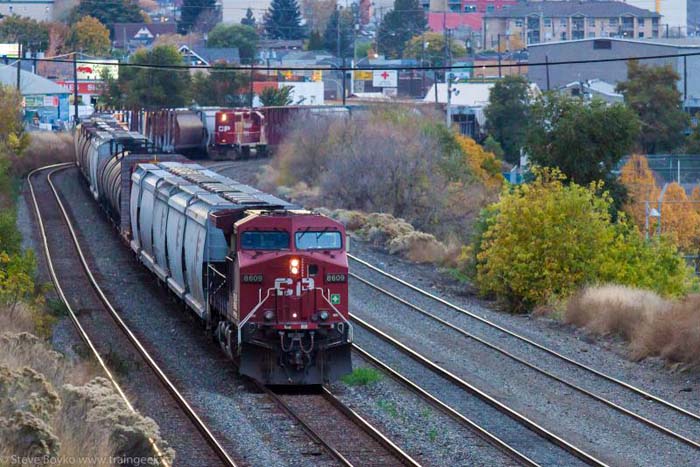
20 Oct 2014 Steve Boyko *2.
and Leave Railways Alone
Kamloops British Columbia - Re: The series of stories in the 7 Aug 2019 edition of KTW regarding railway issues in Kamloops (Railway
Woes).
It is very unfortunate that some key railway crossings are becoming blocked periodically, but this is to be expected when living or doing business near
railways in today's world, given the length of today's trains.
Railways are businesses, just like any other business, and they are just doing what railways and other businesses do, looking after their bottom line as they
transport commodities along their corridors.
It is the responsibility of municipalities and senior levels of government to make our roads and main arterial highways function more efficiently, isn't
it?
I don't think it is the railway's responsibility to make crossing their tracks more achievable, other than to follow the rules laid out for them, which they
are apparently doing, as referenced in the aforementioned KTW article.
What we need at some of these troubled railway crossings is some overpasses or underpasses to eliminate the waiting times.
We also have traffic flow problems on the Trans-Canada Highway through Valleyview due to far too many traffic lights that disrupt traffic flow.
The general public needs to focus their desire for improvements at the right governing bodies.
I agree with the position taken in the article by CP, where the company indicates these issues are highways issues, not railway issues, despite trains being
the root of the problem.
Kamloops is built in narrow valleys and, unfortunately, it appears there was a huge lack of foresight when some of our main traffic corridors were constructed
and when some of Kamloops' subdivisions and other development were approved.
Valleyview is a prime example, with its frontage roads, a major highway, and a railway built just a few feet from each other.
The valley bottom in Kamloops is very rapidly becoming built out, so if those who wish to have the railway tracks through out city moved, please inform us
where they could possibly go, and who would pay for this transition.
The railways were here first and communities built around them to the point of congestion.
The communities need to somehow deal with the problems they have created.
Bob Wren.
provisions in Section 29 of the Canadian
Copyright Modernization Act.


